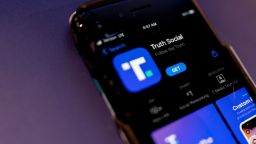Stocks may be making a comeback lately. Ditto for bitcoin and other cryptocurrencies. But one speculative corner of the market is still in the doldrums: SPACs.
Remember all those special purpose acquisition companies that went public and then bought private firms? These so-called blank check deals were all the rage in 2020 and early 2021.
Virgin Galactic (SPCE) and DraftKings are two well-known companies that went public via SPACs. Mattress seller Purple Innovation (PRPL) and Twinkies maker Hostess Brands (TWNK) are also SPAC alumni.
But in the past year, SPAC has become a bit of a dirty word — or acronym — on Wall Street. High profile SPAC blowups such as Nikola, WeWork and BuzzFeed have raised alarm bells.
The Defiance Next Gen SPAC ETF, which owns shares of electric vehicle maker Lucid, Southeast Asian delivery company Grab and the Donald Trump-backed SPAC Digital World Acquisition Corp, has dropped 18% this year, much more than the broader market, and has plunged nearly 35% in the past 12 months.
“We have definitely seen a slowdown since 2020,” said Kerry Ann Sullivan, a director in the transaction advisory practice at consulting firm Berkeley Research Group. Sullivan said that demand for due diligence tied to SPAC deals in early 2020 was “hot and heavy.” Not anymore
Clock ticking on SPACs to buy
Several blank check firms that went public in recent years haven’t yet made a purchase and they’re now facing deadlines to make a deal or return cash to their investors. SPACs typically have about 18 to 24 months to complete a merger.
It may be tough for many of them to find willing acquisition partners. The stock market has had a tumultuous year so far. Investors are worried about inflation, rate hikes from the Federal Reserve, the Russian invasion of Ukraine and the ongoing Covid-19 pandemic.
Geopolitical jitters in particular have hurt demand for SPACs, as well as for companies going public through more traditional initial public offerings.
“The war has tightened the pipeline of new issuances coming to the market in early 2022,” Ken Leon, director of research at CFRA, said in a report on big banks earlier this month. “SPACs … already realized steep declines in public market prices prior to the Ukraine crisis.”
Leon noted that “underwriting remains a pivotal area for investment banking” after a record year for IPOs in 2021.
Cautious optimism for a comeback
Big banks like Goldman Sachs (GS), JPMorgan Chase (JPM) and Morgan Stanley (MS) typically generate lucrative fees from advising on SPAC deals as well as IPOs.
Investment banks often help engineer private investment in public equity (or PIPE) deals in conjunction with SPACs to raise more money for a company going public through a blank check merger.
SPACs aren’t completely dead. If nothing else, the massive shakeout has forced investors to look for more quality deals instead of throwing cash at the latest SPAC from an EV or media startup with no revenue, let alone profits.
Sullivan said there has been a greater emphasis on businesses in the health care sector for SPAC deals during the pandemic.
She also welcomes more scrutiny on SPACs from the Securities and Exchange Commission. That will help ensure that the deals getting done now have a better chance of success once they go public.
“Regulatory involvement should give investors more of a comfort level with SPACs,” Sullivan said. “They are honing in on protections for investors, and we hope the mindset on SPACs changes. It’s good that the SEC is looking more cautiously.”




























